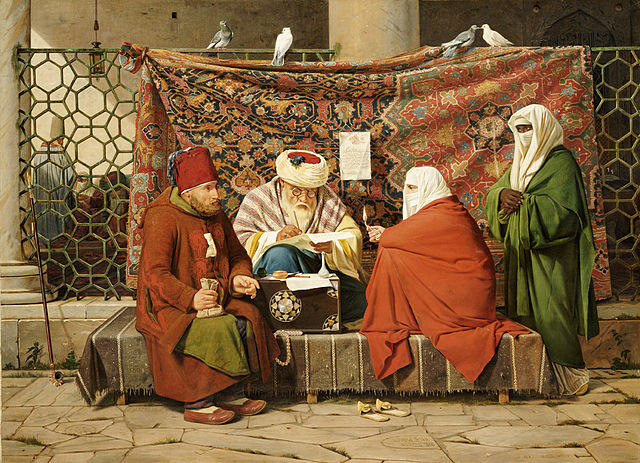In Islam, nikah is a contract exclusively between a man and woman. Both the groom and the bride are to consent to the marriage of their own free wills. A formal, binding contract – verbal or on paper – is considered integral to a religiously valid Islamic marriage, and outlines the rights and responsibilities of the groom and bride. Divorce in Islam can take a variety of forms, some executed by a husband personally and some executed by a religious court on behalf of a plaintiff wife who is successful in her legal divorce petition for valid cause. Islamic marital jurisprudence allows Muslim men to be married to multiple women.
Nikah process. The scene is set outside the Kilic Ali Pasha Mosque. (Turkey, 1837)
A Pakistani bride signing a marriage certificate
A Bengali groom during his wedding.
A Pakistani-American bride signing the nikah nama (marriage certificate)
Islamic marriage contract
An Islamic marriage contract is considered an integral part of an Islamic marriage, and outlines the rights and responsibilities of the husband and wife or other parties involved in marriage proceedings under Sharia. Whether it is considered a formal, binding contract depends on the jurisdiction. Islamic faith marriage contracts are not valid in English law, nor American Law. Because of this, some Islamic Marriage Officiants will only officiate a marriage after the couple had been legally married in court.
An 1874 Islamic marriage contract.
A bride signing the nikah nama (marriage contract).





